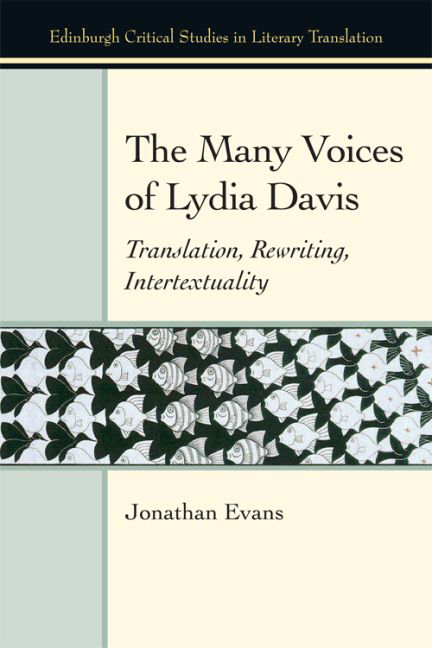4 - Proust and Rewriting
Published online by Cambridge University Press: 20 April 2017
Summary
Davis’ relationship to Proust's In Search of Lost Time is the most complex of her relationships with texts she has translated. Davis's move towards a more literal, source-oriented form of translation, which began with Blanchot and was developed in her translation of Leiris, continues with her translation of Proust. She has stated how her ‘aim in [this] translation was to stay as close as possible to Proust's original in every way, even to match his style as nearly as [she] could’ (Davis 2002a: xxxi). This approach allowed Davis to focus on Proust's word choice and syntax, which is mirrored by her own careful selection of words in her translation as well as in her own stories.
Davis has discussed Proust's influence on her writing of The End of the Story (Knight 1999: 529). Given that her translation of The Way by Swann's was published later in her career, the process of translating Proust is not a determining feature of that influence. On the other hand, Davis’ reading of Proust was influenced by C. K. Scott Moncrieff's earlier translation (Proust 1960). She describes Proust as ‘going deeply into the impression that a thing made on him as a child or as an adult, exploring the nuances of the effect of an experience on the narrator’ (Knight 1999: 529). This is a process that can also be seen in Davis’ The End of the Story, which explores the narrator's relationship with an unnamed man and its aftermath. The End of the Story contains several intertextual references to In Search of Lost Time which position it as a Proustian novel. As this chapter shows, similarities of form and technique also make Proust a precursor for Davis: The End of the Story begs to be read within a tradition that stems from Proust. But, I will argue, Davis subverts the teleological goal of Proust's novel in her own, writing a narrative that has no goal to reach other than its own telling.
The End of the Story could be considered to rewrite elements of Proust's novel. This is not the only rewriting of Proust that takes place in Davis’ work, however, as her translation of The Way by Swann's can also be considered a form of rewriting.
- Type
- Chapter
- Information
- The Many Voices of Lydia DavisTranslation, Rewriting, Intertextuality, pp. 70 - 88Publisher: Edinburgh University PressPrint publication year: 2017



